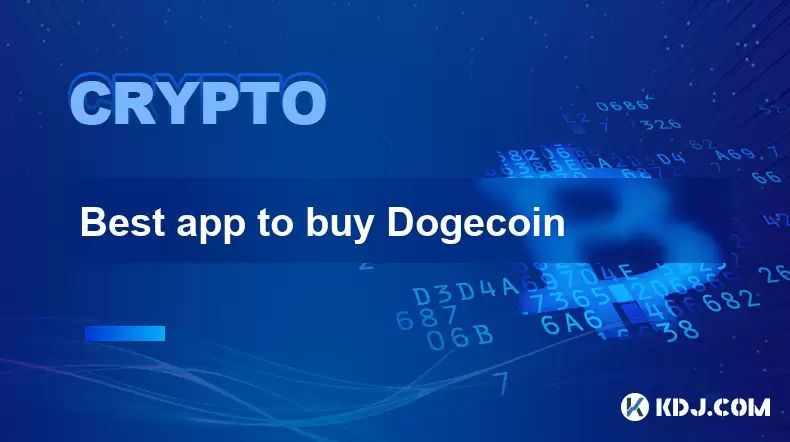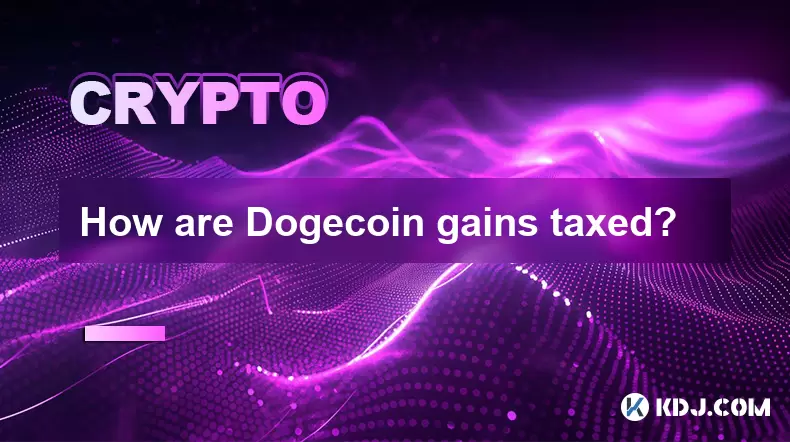-
 bitcoin
bitcoin $87959.907984 USD
1.34% -
 ethereum
ethereum $2920.497338 USD
3.04% -
 tether
tether $0.999775 USD
0.00% -
 xrp
xrp $2.237324 USD
8.12% -
 bnb
bnb $860.243768 USD
0.90% -
 solana
solana $138.089498 USD
5.43% -
 usd-coin
usd-coin $0.999807 USD
0.01% -
 tron
tron $0.272801 USD
-1.53% -
 dogecoin
dogecoin $0.150904 USD
2.96% -
 cardano
cardano $0.421635 USD
1.97% -
 hyperliquid
hyperliquid $32.152445 USD
2.23% -
 bitcoin-cash
bitcoin-cash $533.301069 USD
-1.94% -
 chainlink
chainlink $12.953417 USD
2.68% -
 unus-sed-leo
unus-sed-leo $9.535951 USD
0.73% -
 zcash
zcash $521.483386 USD
-2.87%
What is the practical use of Bitcoincoin? Or is it a pure entertainment coin?
Dogecoin, once a meme coin, now serves practical purposes like tipping, payments, charity, gambling, and education in the crypto world.
May 10, 2025 at 06:01 pm

Dogecoin, originally created as a meme-inspired cryptocurrency in 2013, has evolved from its playful origins to demonstrate various practical uses within the cryptocurrency ecosystem. While it retains its fun and community-driven spirit, Dogecoin has found several real-world applications, making it more than just an entertainment coin.
Dogecoin's Origin and Community
Dogecoin was launched by Billy Markus and Jackson Palmer as a lighthearted alternative to the more serious cryptocurrencies like Bitcoin. The coin's mascot, the Shiba Inu dog from the 'Doge' meme, quickly garnered a strong and supportive community known as the 'Doge Army.' This community has been instrumental in promoting Dogecoin and driving its adoption, often through charitable initiatives and tipping culture.
The Dogecoin community frequently uses the coin to tip content creators on social media platforms, blogs, and forums. This practice has fostered a positive environment where users are rewarded for their contributions, encouraging more engagement and content creation. The tipping system is facilitated through platforms like Reddit and Twitter, where users can easily send small amounts of Dogecoin to others.
Dogecoin as a Payment Method
Beyond its social media tipping, Dogecoin has been adopted as a payment method by various businesses. From online merchants to physical stores, Dogecoin's low transaction fees and fast processing times make it an attractive option for businesses looking to accept cryptocurrency payments. For instance, some tech companies and e-commerce platforms have integrated Dogecoin into their payment systems, allowing customers to purchase goods and services using the cryptocurrency.
To use Dogecoin for payments, users typically follow these steps:
- Download a Dogecoin wallet: Choose a secure wallet that supports Dogecoin, such as the official Dogecoin Core wallet or a mobile wallet like DogePal.
- Purchase Dogecoin: Buy Dogecoin from a cryptocurrency exchange that supports it, such as Binance or Coinbase.
- Transfer Dogecoin to your wallet: Send the purchased Dogecoin from the exchange to your personal wallet.
- Make a payment: When making a purchase, select Dogecoin as the payment method on the merchant's platform and follow the instructions to complete the transaction.
Dogecoin in Charitable Giving
Another practical use of Dogecoin is in charitable giving. The Dogecoin community has a long history of supporting various causes and charities through fundraising campaigns. One notable example is the Dogecoin community's efforts to raise funds for the Jamaican bobsled team to attend the Winter Olympics. Such initiatives highlight the coin's potential to make a positive impact beyond the cryptocurrency space.
To participate in Dogecoin-based charitable giving, users can:
- Identify a cause: Find a charitable cause or organization that accepts Dogecoin donations.
- Send Dogecoin: Use your Dogecoin wallet to send the desired amount to the charity's Dogecoin address.
- Track the impact: Many charities provide updates on how the donated funds are being used, allowing donors to see the tangible impact of their contributions.
Dogecoin in Gambling and Gaming
Dogecoin has also found a niche in the gambling and gaming industry. Several online casinos and betting platforms now accept Dogecoin as a payment method, offering players the ability to wager and win using the cryptocurrency. The low transaction fees and fast processing times make Dogecoin an appealing choice for both operators and users in the gambling space.
In addition to gambling, Dogecoin is used in various gaming platforms where players can earn or spend the cryptocurrency. Some games integrate Dogecoin as an in-game currency, allowing players to purchase virtual goods or participate in tournaments. This integration enhances the gaming experience and provides players with additional ways to engage with the cryptocurrency.
Dogecoin as a Store of Value
While Dogecoin is often viewed as a more speculative asset compared to other cryptocurrencies, some users see it as a potential store of value. Although it lacks the scarcity of Bitcoin, Dogecoin's large and active community, along with its increasing adoption, has led some to believe in its long-term value proposition. However, it's important to note that Dogecoin's value can be highly volatile, and it should be approached with caution as an investment.
For those interested in holding Dogecoin as a store of value, the process involves:
- Researching the market: Understand the current market trends and the factors influencing Dogecoin's price.
- Diversifying your portfolio: Consider holding Dogecoin as part of a diversified cryptocurrency portfolio to mitigate risk.
- Storing securely: Use a secure wallet to store your Dogecoin, and consider using cold storage for larger amounts to enhance security.
Dogecoin's Role in Cryptocurrency Education
Finally, Dogecoin plays a significant role in cryptocurrency education. Due to its approachable and fun nature, Dogecoin often serves as an entry point for newcomers to the world of cryptocurrencies. Many people start their cryptocurrency journey by learning about and using Dogecoin, which then leads them to explore other digital assets and blockchain technologies.
Educational resources and communities dedicated to Dogecoin help users understand the basics of cryptocurrency, including how to buy, sell, and use it. This educational aspect contributes to the broader adoption and understanding of cryptocurrencies, making Dogecoin a valuable tool for onboarding new users into the ecosystem.
Frequently Asked Questions
Q: Can Dogecoin be mined like Bitcoin?A: Yes, Dogecoin can be mined, but it uses a different mining algorithm called Scrypt, which is more memory-intensive than Bitcoin's SHA-256. Dogecoin mining can be done using specialized hardware or through mining pools, where miners combine their resources to increase their chances of earning rewards.
Q: Is Dogecoin suitable for international transactions?A: Dogecoin can be used for international transactions due to its fast transaction times and low fees. However, users should be aware of the potential volatility of its value and ensure that the recipient's country does not have restrictions on cryptocurrency transactions.
Q: How does Dogecoin compare to other meme coins?A: Dogecoin is often considered the original meme coin and has a larger market capitalization and more widespread adoption than most other meme coins. While other meme coins may offer unique features or community initiatives, Dogecoin's established presence and strong community support set it apart.
Q: Can Dogecoin be used for smart contracts?A: Dogecoin, in its current form, does not support smart contracts. However, there are proposals and ongoing discussions within the Dogecoin community about integrating smart contract functionality in the future, which could expand its use cases.
Disclaimer:info@kdj.com
The information provided is not trading advice. kdj.com does not assume any responsibility for any investments made based on the information provided in this article. Cryptocurrencies are highly volatile and it is highly recommended that you invest with caution after thorough research!
If you believe that the content used on this website infringes your copyright, please contact us immediately (info@kdj.com) and we will delete it promptly.
- Ripple, Banks, & Cash: The Digital Treasury Revolution and Washington's New Blueprint
- 2026-01-31 22:40:02
- Bitcoin's High-Wire Act: Leverage Ratio Spikes, Volatility Looms on the Horizon
- 2026-01-31 22:20:02
- Spur Protocol's SON Token: A Listing Saga and Its Murky Price Outlook
- 2026-01-31 22:15:04
- Bitcoin Price Breakdown Looms as Institutions Pull Billions: BTC Faces Critical Juncture
- 2026-01-31 22:10:07
- Tria Airdrop's Second Act: Season 2 Kicks Off, XP Details Unveiled
- 2026-01-31 22:05:08
- Silver Liquidation Raised Eyebrows: What Happened, and What It Means
- 2026-01-31 22:00:07
Related knowledge

Bitcoincoin burning mechanism
Jul 20,2025 at 09:21pm
What is the Dogecoin burning mechanism?The Dogecoin burning mechanism refers to the process of permanently removing DOGE tokens from circulation by se...

How to earn free Bitcoincoin?
Jul 19,2025 at 10:08pm
What is Dogecoin and Why Earn It?Dogecoin (DOGE) started as a meme-based cryptocurrency in 2013 but has grown into a widely recognized digital asset. ...

Is Coinbase a good wallet for Bitcoincoin?
Jul 19,2025 at 04:42pm
Understanding Coinbase as a Wallet Option for DogecoinWhen considering where to store Dogecoin, Coinbase is often mentioned as a potential option due ...

How to buy Bitcoincoin with PayPal?
Jul 23,2025 at 06:57am
Understanding the Basics of Buying DogecoinBefore diving into the process of buying Dogecoin with PayPal, it’s essential to understand what Dogecoin i...

Best app to buy Dogecoin
Jul 23,2025 at 03:08pm
What Is a Cryptocurrency Exchange and How Does It Work?A cryptocurrency exchange is a digital marketplace where users can buy, sell, or trade cryptocu...

How are Dogecoin gains taxed?
Jul 25,2025 at 07:01am
Understanding the Taxation of Dogecoin GainsWhen it comes to Dogecoin (DOGE), many investors are drawn to its meme-inspired branding and volatile pric...

Bitcoincoin burning mechanism
Jul 20,2025 at 09:21pm
What is the Dogecoin burning mechanism?The Dogecoin burning mechanism refers to the process of permanently removing DOGE tokens from circulation by se...

How to earn free Bitcoincoin?
Jul 19,2025 at 10:08pm
What is Dogecoin and Why Earn It?Dogecoin (DOGE) started as a meme-based cryptocurrency in 2013 but has grown into a widely recognized digital asset. ...

Is Coinbase a good wallet for Bitcoincoin?
Jul 19,2025 at 04:42pm
Understanding Coinbase as a Wallet Option for DogecoinWhen considering where to store Dogecoin, Coinbase is often mentioned as a potential option due ...

How to buy Bitcoincoin with PayPal?
Jul 23,2025 at 06:57am
Understanding the Basics of Buying DogecoinBefore diving into the process of buying Dogecoin with PayPal, it’s essential to understand what Dogecoin i...

Best app to buy Dogecoin
Jul 23,2025 at 03:08pm
What Is a Cryptocurrency Exchange and How Does It Work?A cryptocurrency exchange is a digital marketplace where users can buy, sell, or trade cryptocu...

How are Dogecoin gains taxed?
Jul 25,2025 at 07:01am
Understanding the Taxation of Dogecoin GainsWhen it comes to Dogecoin (DOGE), many investors are drawn to its meme-inspired branding and volatile pric...
See all articles





















![Ultra Paracosm by IlIRuLaSIlI [3 coin] | Easy demon | Geometry dash Ultra Paracosm by IlIRuLaSIlI [3 coin] | Easy demon | Geometry dash](/uploads/2026/01/31/cryptocurrencies-news/videos/origin_697d592372464_image_500_375.webp)




















































